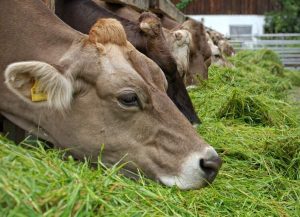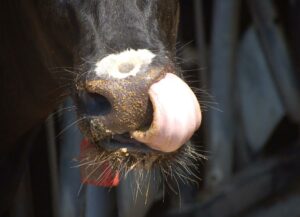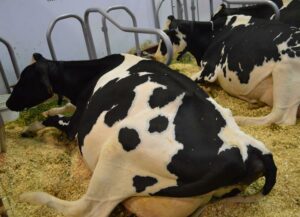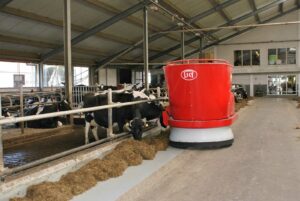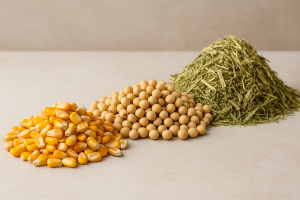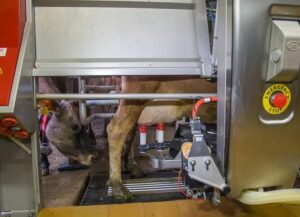Alvaro Garcia
Early lactation is a challenging and stressful period for dairy cows. Several metabolic diseases happen during this period, which is characterized by a negative energy balance and metabolic imbalance. Most of these issues start as close-ups and result from faulty management and/or feeding practices. Over-conditioning cows during the dry period allows them to mobilize more fat after calving and make them prone to metabolic diseases early in the lactation.
Recently calved cows have reduced appetite and greater energy demands due to the sudden increased milk production. This results in greater fat mobilization and increased hepatic triacylglycerol deposits predisposing to what is known as fatty liver and even ketosis. There are also negative effects of excessive fat mobilization on the metabolism and the immune system (neutrophils). Blood neutrophil phagocytosis has been shown to decrease 14 days post calving in cows overfed during the dry period. Choline helps with lipid transport from the liver in very low-density lipoproteins (VLDL).
Feeding rumen protected choline in close-up cows decreases hepatic triacylglycerol and increases milk yields without necessarily increasing intake or mobilization of body fat. It has been hypothesized that the greater milk yields may result by a better utilization of nutrients by protecting the integrity of enterocyte membranes. Choline supplementation may decrease the inflammatory response and improve performance by sparing energy for the immune system. There may also be a positive effect by increasing phosphatidylcholine/poly-phosphoinositides ratio in cell membranes.
Increased phosphatidylcholine in cell membranes reduces the production of pro-inflammatory cytokines like the macrophage tumor necrosis factor TNFα. The TNFα for example induces a systemic acute-phase response characterized by fever, release of liver-derived acute-phase proteins, and fatty liver in dairy cows. Dairy cows have reduced plasma concentration of phosphatidylcholine early postpartum, possibly associated with a decrease in the phosphatidylcholine/phosphatidylinositol ratio in cell membranes.
A study (Zenobi et al., 2020) tested the effects of choline on the modulation of the inflammation and immune response of dairy cows in transition. Four treatments were assigned in a 2×2 factorial: excess energy intake with and without protected choline, and maintenance energy intake with and without choline as follows:
- No choline
- 60 g of protected choline (12.9 g/d active choline) 21 days pre-calving to 21 days post-calving
- Dry cow diets with 1.63 Mcal of NEL/kg ad libitum
- Dry cow diets with 1.40 Mcal of NEL/kg ad libitum
Cows fed excess energy during the dry period showed increased indicators of inflammation compared to those fed to maintenance. When protected choline was added to the diet there was a reduced inflammatory response post calving particularly in cows fed in excess of energy requirements. Regardless of the energy concentration during the dry period cows fed protected choline during transition showed decreased indicators of inflammation, with lower rectal temperatures at 12 days post-calving, reduced plasma concentrations of haptoglobin pre-calving and fibrinogen post-calving.
Cows also showed decreased production of the macrophage TNFα and abundance of interleukin 1 beta (IL1B) and chemokine ligand 8 (CXCL8) transcripts in bacterial lipopolysaccharide-stimulated peripheral blood lymphocytes (LPS-PBL).
Supplemental choline increased blood neutrophils undergoing phagocytosis and oxidative burst at 17 days post-calving. The latter is an indication of improved innate cellular immune function. Feeding protected choline pre-calving modulated immunity after calving and is thus proposed as a contributing factor to the overall immune status also leading to increased milk production.
Reference
Zenobi, M.G., Gardinal, R., Zuniga, J.E., Mamedova, L.K., Driver, J.P., Barton, B.A., … Nelson, C.D. 2020. Effect of prepartum energy intake and supplementation with ruminally protected choline on innate and adaptive immunity of multiparous Holstein cows. Journal of Dairy Science. 103:2200–2216
© 2020 Dairy Knowledge Center. All Rights Reserved.


